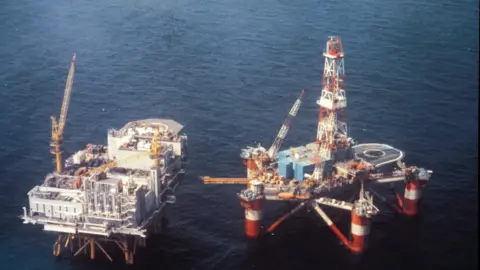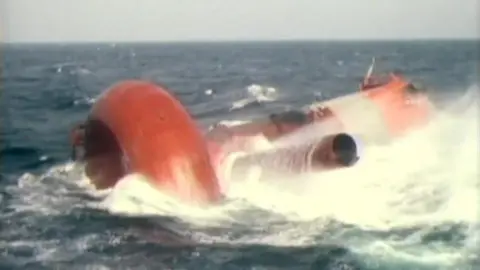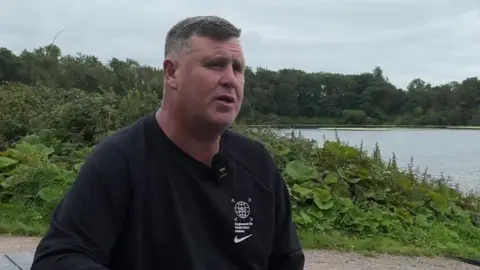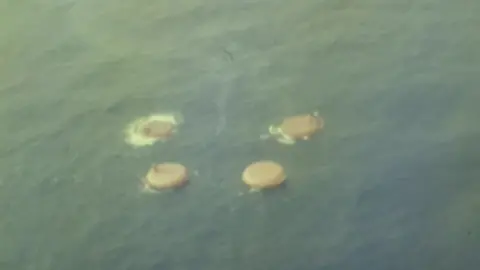Alexander Kielland relatives seek answers 43 years on
 Norwegian Petroleum Museum
Norwegian Petroleum MuseumDescendants of a British oil rig worker killed when the accommodation platform he was on capsized hope to get answers and closure when they travel to Norway.
The body of Keith Hunter, 34, was never found after he and 122 others were killed when the Alexander Kielland platform overturned in 1980.
He was one of six men from Cumbria killed in the disaster in the Ekofisk oil field in the Norwegian North Sea.
A conference is being held in Stavanger for families seeking answers.

An official inquiry held behind closed doors said the 27 March disaster, which had 89 survivors, was caused by a fatigue crack on a bracing holding one of the five legs supporting the so-called flotel.
But families said they had never been able to see the report and had many questions about what actually happened.
Campaigner Kian Reme of the Kielland Network in Norway, which is organising the conference, visited Cumbria in 2022 to find families of those killed and met Mr Hunter's sons Wayne and Alan.
 Empics
EmpicsWayne Hunter said he had "missed" having a father and spent years trying to bury the pain.
But now he said he and his brother wanted answers about what happened to their father, who is remembered on a memorial stone along with four other men from Cleator Moor killed in the disaster.
He told the BBC: "[We want] answers so we can move on in life.
"The truth is massive, everyone deserves the truth, it will be part of closure."

Mr Reme said he hoped British families would create a network like that in Norway to apply political pressure, adding: "The push for more answers will be stronger if we connect.
"Fighting for facts is a very important element in the healing process for these traumas people are experiencing."
More than 20 British relatives are due to attend the three-day conference.

Follow BBC North East & Cumbria on Twitter, Facebook and Instagram. Send your story ideas to [email protected].
